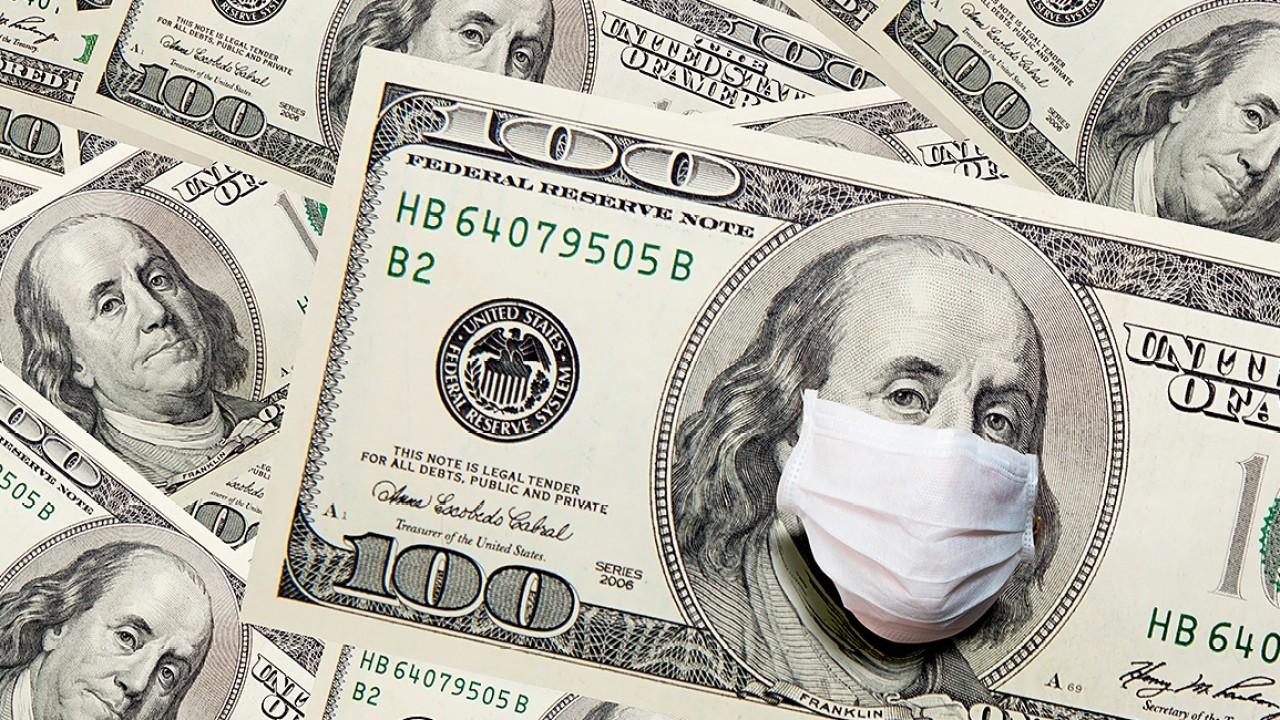Sanders, progressive Dems demand that COVID-19 relief deal includes stimulus checks
Progressive lawmakers demand COVID relief bill excludes liability protections for businesses
Sen. Bernie Sanders is leading a progressive push for the next COVID-19 relief bill to include a second round of stimulus checks after Democratic leaders backed a compromise agreement without the payments last week.
The Vermont independent, along with five Democratic senators, is also urging lawmakers to reject a broad liability shield for businesses against coronavirus-related lawsuits that's currently included in the $908 billion bipartisan proposal.
"We very much appreciate the hard work that has gone into the current $908 billion proposal being drafted by a number of Democratic and Republican Senators," the legislators wrote in a letter to their colleagues. "But, simply stated, given the horrific extent of the current crisis and the desperation that working families all over this country are experiencing, this proposal does not go anywhere near far enough."
BIDEN CALLS FOR ERASING SOME STUDENT LOAN DEBT, FACES PROGRESSIVE PRESSURE TO GO FURTHER
The letter was signed by Sanders, as well as Sens. Kirsten Gillibrand, D-N.Y.; Elizabeth Warren, D-Mass.; Jeff Merkley, D-Ore.; Ed Markey, D-Mass.; and Ron Wyden, D-Ore.
The aid package, unveiled last week by a group of bipartisan senators, allocates about $300 billion in funding for small businesses through the Paycheck Protection Program, $240 billion in aid for state and local governments, $180 billion to extend boosted unemployment benefits at $300 per week through March and includes liability protections for businesses that remain open during the pandemic.
It would also funnel $16 billion into vaccine distribution, testing, and contact tracing, put $82 billion into education and give $45 billion for transportation. The bill text has not been finalized yet.
CORONAVIRUS RELIEF DEAL TO BOOST WEEKLY JOBLESS AID BY $300 BUT WON'T INCLUDE STIMULUS CHECK
Although House Speaker Nancy Pelosi and Senate Minority Leader Chuck Schumer endorsed the framework, a stark reversal from previous months when they maintained that at least $2.2 trillion in new spending is needed, the proposal has faced pushback from Democrats -- as well as Republicans -- who have sounded the alarm over the lack of cash payments and the inclusion of a liability shield.
Sen. Josh Hawley, R-Mo., has likewise said the relief bill needs to include direct payments for families and individuals -- and lobbied President Trump to veto the legislation absent funding for that.
“I said, ‘I think it's vital that any relief include direct payments, and I'm not gonna vote for it if it doesn't.’ And I also urged him to veto any bill that did not have direct payments in it,” Hawley told Politico.
The six progressive senators said the $300-a-week in supplemental unemployment benefits is not enough, as is the overall spending amount given Democrats' preference for a multitrillion-dollar bill. Because the proposal reallocates from CARES Act funding, it would only require $348 billion in new funding, Sen. Mitt Romney, R-Utah, told reporters last week.
"The American people need help and they need help now. We agree with President-elect Biden that a $1,200 direct payment should be included in this proposal," they wrote. "We also feel strongly that we should not provide immunity to corporations who endanger the health and lives of their employees."
12 MILLION AMERICANS FACE LOSS OF UNEMPLOYMENT BENEFITS DAY AFTER CHRISTMAS
The group of bipartisan senators unveiled the framework last week in a last-ditch effort to break a months-long stalemate over another COVID-19 relief bill before the end of the year.
Renewed relief talks come at an increasingly perilous time for the nation as it teeters on the brink of another economic downturn. Job growth is slowing -- the Labor Department said last week that the economy created just 245,000 new positions last month, the smallest amount since the recovery began -- state and local governments are implementing more restriction measures and key lifelines that propped up the economy in the early days of the pandemic are poised to expire at the end of the year.
One estimate found that at least 12 million laid-off workers will be left without an income the day after Christmas when two federal jobless aid programs established in the March CARES Act expire.
Unless the two sides can compromise on the issues, the $908 billion deal could fall apart.
The House will vote on a temporary funding measure Wednesday to keep the federal government running until Dec. 18, giving lawmakers an extra week to strike a deal on an omnibus spending bill that's expected to include COVID-19 relief.




















